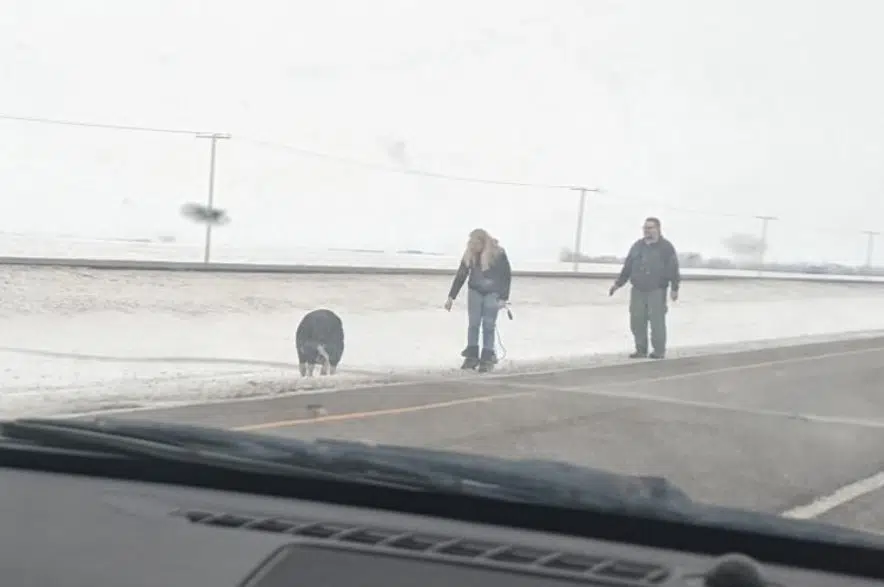It’s not often you see a pig delay on the Trans-Canada Highway, but that’s what motorists west of Moose Jaw were dealing with earlier this week.
The RCMP says the pigs either jumped or fell out of a trailer travelling down the highway. The owner returned to the scene and loaded up the animals.
The incident sparked plenty of discussion about whether the pigs were wild or domesticated.
Dr. Ryan Brook, who studies wild pigs at the University of Saskatchewan, suspected the pigs were likely domesticated because of how close people were able to get to them.
When talking about wild pigs, Brook says those particular animals present a number of concerns.
“Collisions with vehicles are a concern,” Brook said. “These can be very large animals. The biggest one we’ve ever handled here in Saskatchewan was 638 pounds. You can imagine hitting a large pig like that can be dangerous.”
The biggest concern is the potential for disease transmission.
“Especially a disease that’s a global crisis that’s been going on for a few years now called African swine fever,” Brook said. “If that got into our free-ranging wild pigs in Canada, it would be devastating to the hog industry.”
Crop destruction is another problem, with $2.5 billion in damage caused by wild pigs every year in the U.S. Brook describes wild pigs as the worst invasive large mammal on the planet.
Saskatchewan is a hot spot for wild pigs across Canada, especially in the northeast region near Melfort and Tisdale.
Brook adds that we’ve missed the window on eradication and now have to learn to live with them and try to minimize the impacts while keeping the spread of wild pigs down.
Those who encounter wild pigs should report them to Brook (ryan.brook@usask.ca) and should not approach the animals as they can become aggressive.
For more information on wild pigs or Dr. Brook’s research, visit the Canadian Wild Pig Research Project Facebook page.
— With files from 980 CJME’s Lisa Schick







